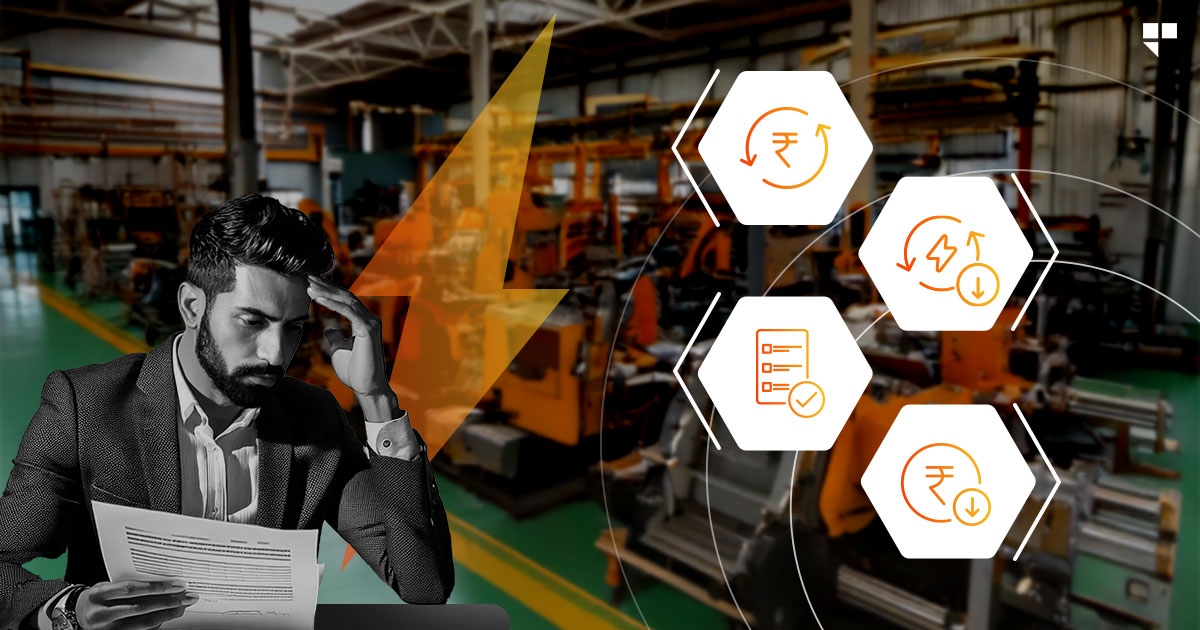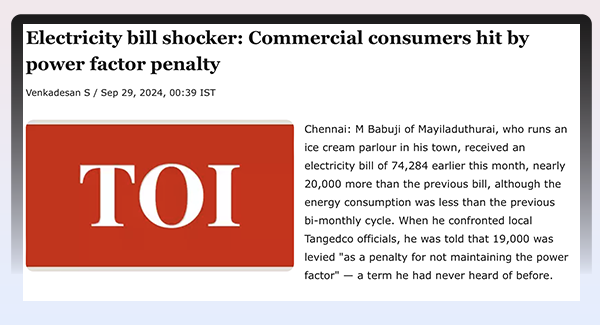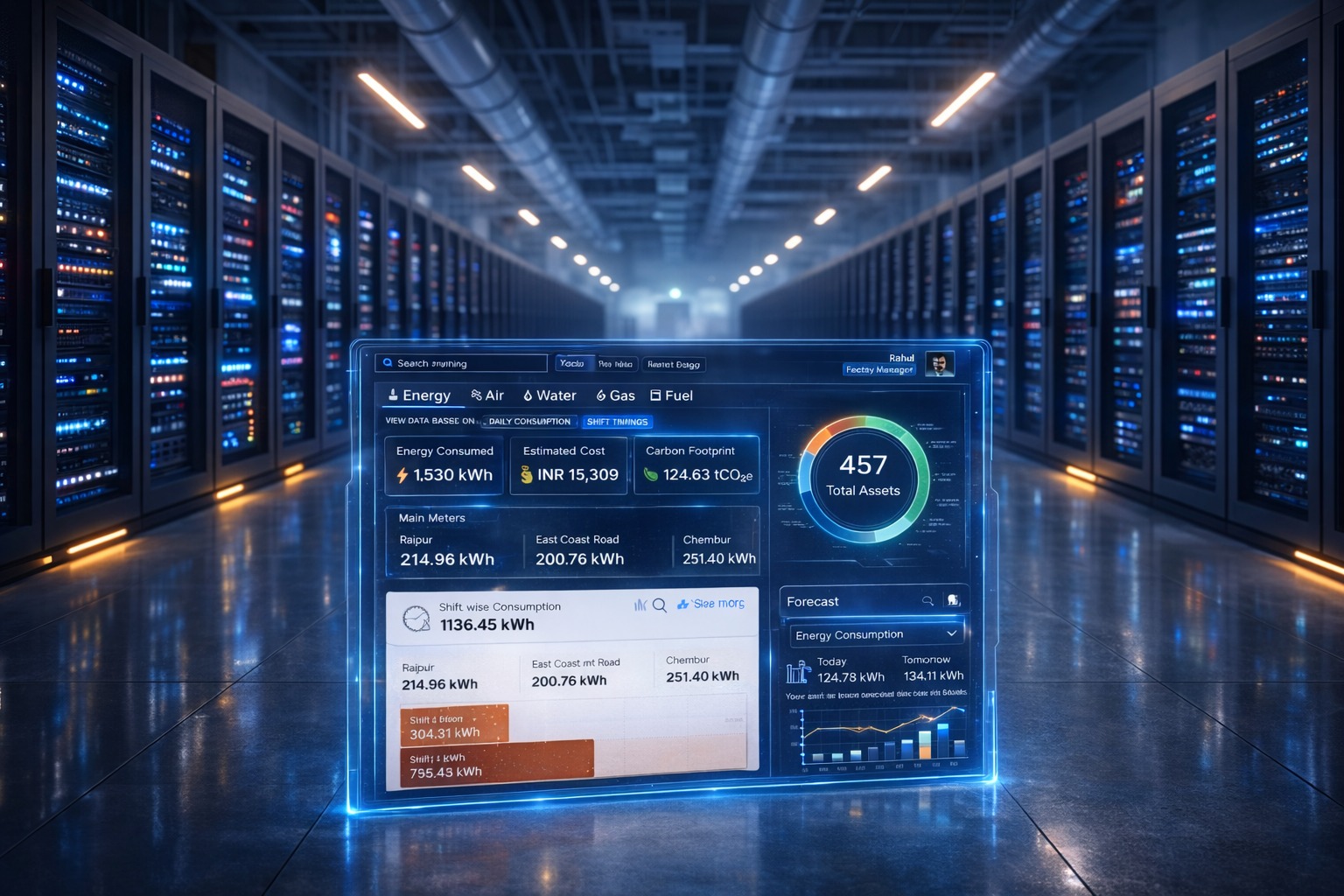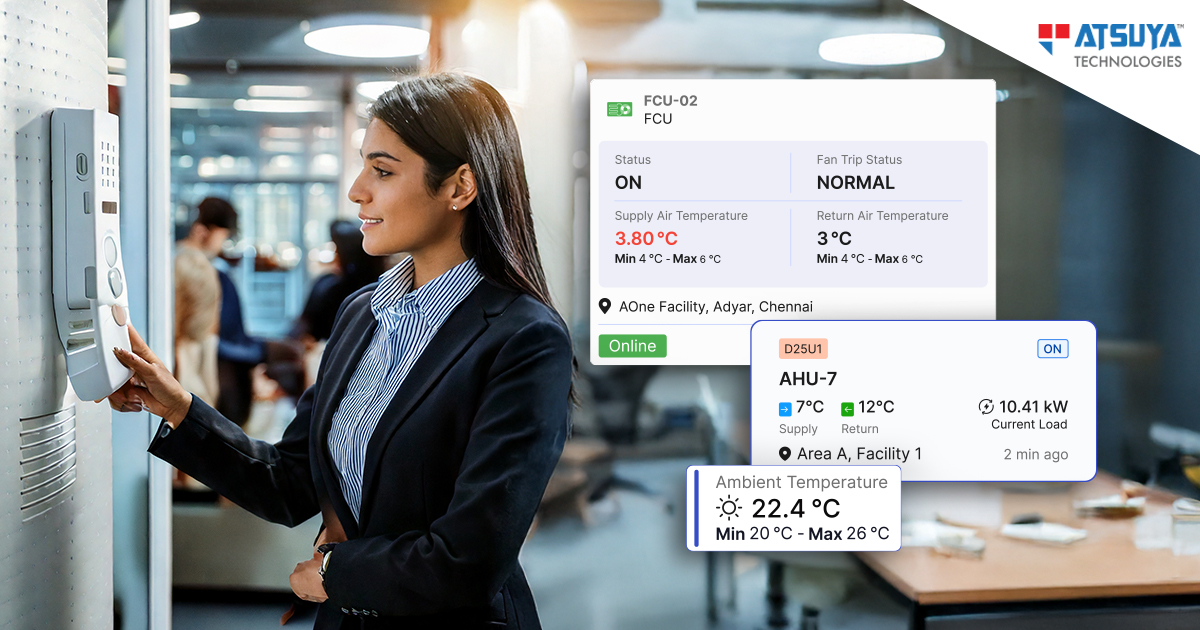
India’s journey toward becoming a global manufacturing hub is rapidly gaining momentum, driven by initiatives like Make in India. Small and medium enterprises (SMEs) are at the heart of this movement, supported by government incentives, such as soft loans and compliance frameworks like zero-defect certification.
However, amid the rush to increase productivity and meet delivery demands from larger businesses, many SMEs lose sight of an essential aspect: operational efficiency. Stretched credit cycles, price pressures, and tight deadlines can cause businesses to neglect critical cost drivers—such as energy consumption and resource management—leading to inflated overheads.
The Hidden Costs of Inefficiency
Small manufacturers face growing challenges, including escalating energy costs, inefficient equipment use, and overlooked resource costs like water and waste management. Large enterprises, by contrast, are often equipped with advanced technologies, energy-efficient practices, and teams dedicated to reducing resource intensity. They are also highly aware of the financial penalties tied to non-compliance with utility regulations, such as maintaining low power factors or exceeding contracted energy demand.
This was highlighted in a recent Times of India report about rising power factor penalties on commercial consumers, where SMEs were hit with steep fines for inefficient energy usage. Power factor penalties can increase energy demand costs by up to 110%, severely impacting profitability. For SMEs, avoiding such penalties through proactive energy management is crucial to staying competitive.

A Simple Data-Driven Solution
One practical solution for SMEs is adopting data-driven tools that offer real-time insights into their energy and resource consumption. A minimalist monitoring application or dashboard, featuring essential parameters and real-time alerts, can help operations managers address issues before they lead to fines or inefficiencies.
Here’s a simple yet effective monitoring setup SMEs should consider:
Energy consumption – Track energy use and identify inefficiencies, particularly those that affect the power factor, to avoid heavy penalties.
Compressed air – Inefficient use of compressed air can raise costs by 20% due to increased pressure. Monitoring pressure levels can reduce waste.
Water consumption – Monitoring can reduce water use by up to 15%, while also lowering energy costs associated with pumping and distribution.
Air conditioning – Remote monitoring and controlling air conditioning systems can lead to a 5-8 unit energy reduction per day, for a single 1-ton A/C unit running 10 hours, by maintaining optimal room temperature (24°C).
Air quality/stack emissions – Ensure compliance with environmental regulations and avoid penalties related to air pollution.
The beauty of this approach is its affordability. By using shared infrastructure services and leveraging existing smartphones or low-cost devices, SMEs can implement these solutions without large capital expenditures. The investment in a basic data-reporting and compliance-monitoring platform could save SMEs significant costs related to penalties, inefficiencies, and wasted resources.
Transforming SMEs with Data
Implementing data-driven monitoring systems could be a game-changer for India’s SMEs. Beyond cost savings, this approach will help businesses align with long-term sustainability goals, such as carbon neutrality, while also improving their competitiveness in a global market. With rising energy costs and stricter compliance requirements, there has never been a more critical time for small manufacturers to embrace the power of data.
At Atsuya, we have been helping industry leaders in the manufacturing sector leverage data to achieve operational excellence. Take your first step towards data-driven efficiency by talking to our experts and getting a tailor-made plan for your business – write to us at marcom@atsuyatech.com.
By adopting smart, affordable data solutions, Indian SMEs can not only save on energy and resource costs but also ensure compliance with utility regulations—building resilience and ensuring their long-term success.




